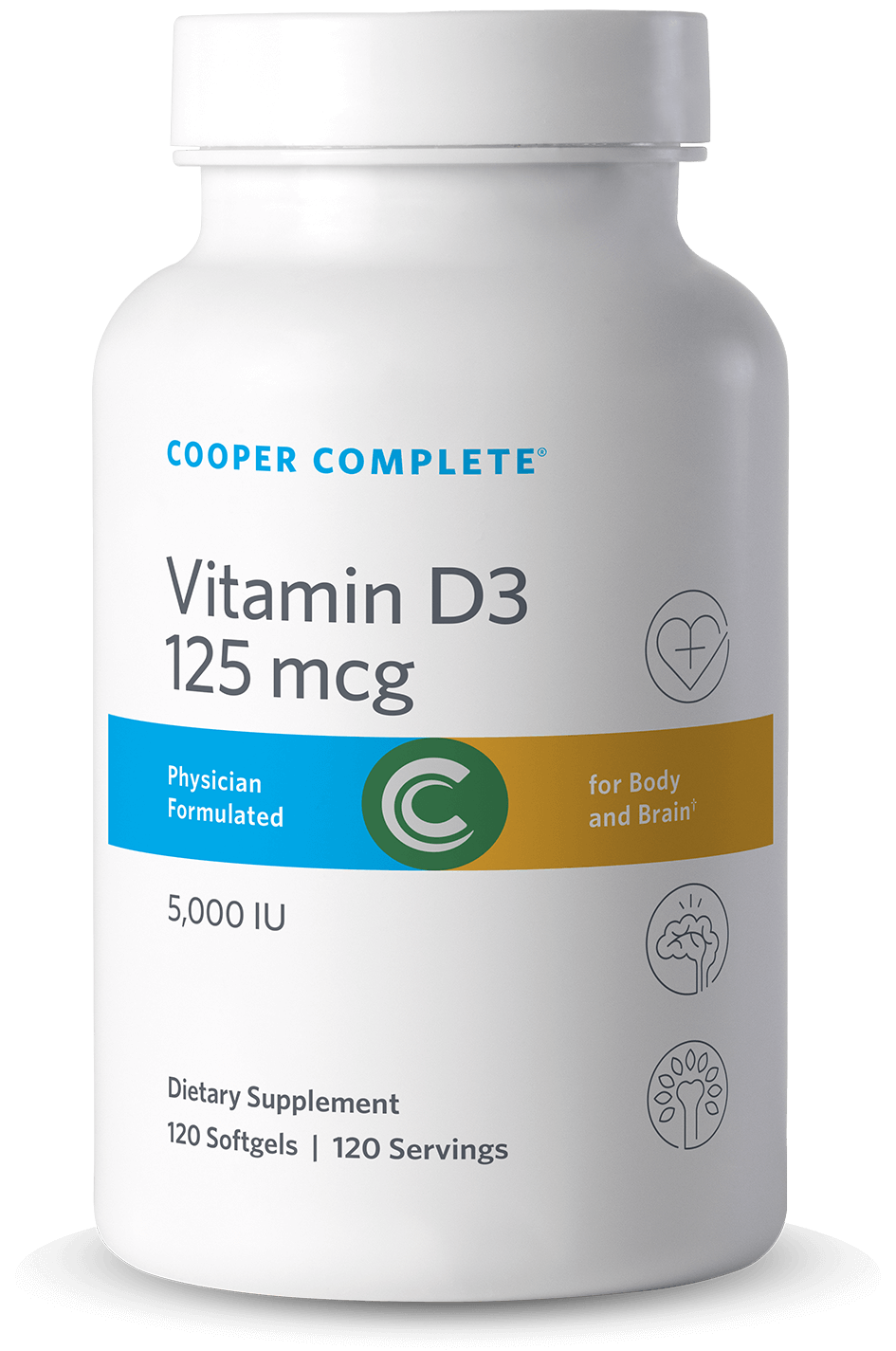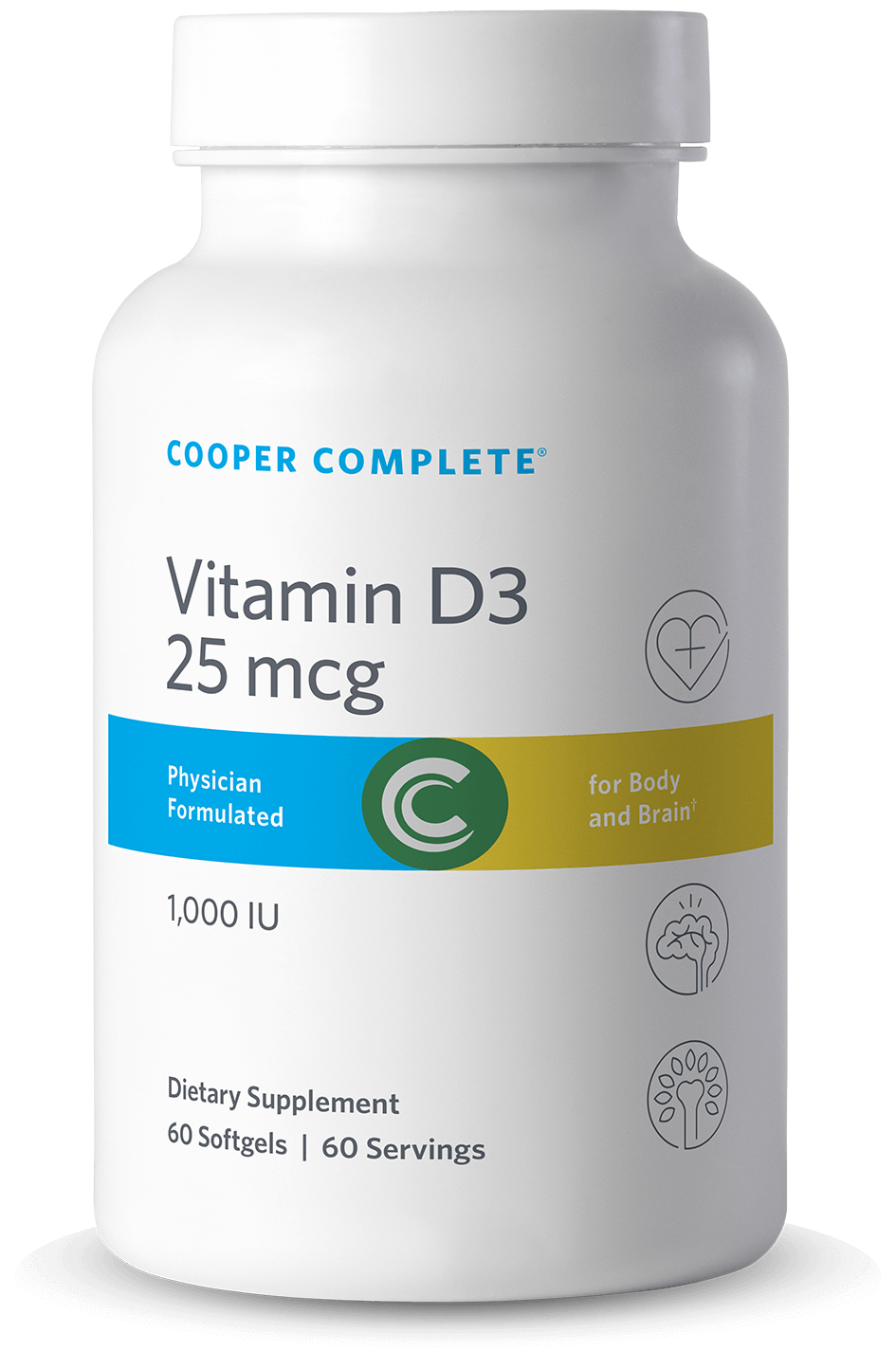Vitamin D and COVID-19: Is There a Relationship?

Cooper Aerobics Founder and Chairman Kenneth H. Cooper, MD, MPH, has been reviewing the literature to see if there is a relationship between Vitamin D and COVID-19.
An article published in The Dallas Morning News on June 3, 2020, was entitled “Illness Deadlier to People of Color.” This article reported on a study published in Great Britain and stated that in British ethnic minorities, there was between 20% and 50% higher risk of death from COVID-19 compared to the lighter-skinned British population. But when the important question “Why?” was asked, the response was that this British study is not able to answer that critical question. Also, in The Dallas Morning News, on June 4, 2020, an article, “COVID-19 Research to Begin,” discussed a study from the Texas Health and Human Services Commission that will launch in the near future and analyze the effects of COVID-19 on vulnerable populations. Data will include race, ethnicity, socioeconomic status and geographic location.
In neither of these articles did they question the role of the vitamin D deficiencies that are almost invariably present in people of color since skin pigmentation reduces the skin’s ability to manufacture vitamin D in response to sunlight exposure (including ultraviolet lights). This may be an important reason why people of color have a higher instance of COVID-19 infections and a higher mortality rate. It is generally believed viruses such as COVID-19 are not directly responsible for morbidity and death, but it is the body’s overreacting immune system called “cytokine storm” that does the damage. Well documented in research, vitamin D is important for innate immunity and boosts your immune function against viral diseases and suppresses the cytokine storm.

Vitamin D3 125 mcg (5000 IU) Supplement
Many individuals don't get enough vitamin D from sunlight or through diet. Vitamin D3 form of Vitamin D Supplement for better absorption.
$26.98 Add to cartVitamin D & COVID-19
A recent study from Northwestern University in Chicago analyzed patient data from hospitals and clinics across China, France, Germany, Italy, Iran, South Korea, Spain, Switzerland, the United Kingdom and the United States and clearly showed that those countries with high COVID-19 mortality rates—such as Italy, Spain and the UK—had lower levels of vitamin D compared to people in countries not as severely affected.
Another article, published by The University of Chicago Medicine titled “Association of Vitamin D Deficiency and Treatment with COVID-19 Incidence,” concluded that “Vitamin D deficiency if not sufficiently treated, is associated with COVID-19 risk. Testing and treatment for vitamin D deficiency to address COVID-19 warrant aggressive pursuit and study.”
Going back to 2017, a large study (11,321 participants ages 0-95 years) published in The British Medical Journal, titled “Vitamin D Supplementation to Prevent Acute Respiratory Tract Infections: Systemic Review and Meta-analysis of Individual Participant Data,” showed vitamin D supplementation was safe, and overall it protected against acute respiratory infections. Patients who experience the most benefit are those who are extremely vitamin D deficient and not those receiving single large doses.
In 2018, an analysis of vitamin D and respiratory health in the Busselton Healthy Ageing Study population (in Western Australia) showed blood levels of 25-hydroxy vitamin D less than 20 ng/mL were associated with asthma, bronchitis, wheezing and chest tightness. Higher vitamin D levels greater than 40 ng/mL were not only associated with a reduction of respiratory symptoms but also associated with higher levels of lung function.
An article was published on May 13, 2020, in The Irish Medical Journal titled “Vitamin D and Inflammation: Potential Implications for Severity of COVID-19.” The authors pointed out that vitamin D is produced in the skin primarily through sunlight exposure. It is transported to the liver and the kidney where it is changed to an active hormone that increases calcium transport from food in the gut and ensures calcium is adequate to keep the skeleton strong and free from osteoporosis. Also, vitamin D can support the immune system through a number of immune pathways involved in fighting SARS-CoV-2. This study showed that counterintuitively, in countries at lower latitude and typically sunny countries such as Spain and Northern Italy, people likely used sunscreen to protect against sun exposure, thus had lower concentrations of vitamin D and higher rates of vitamin D deficiencies. These countries also experienced the highest infection death rates in Europe.

Vitamin D3 25 mcg (1000 IU) Supplement
Many individuals don't get enough vitamin D from sunlight or through diet. Vitamin D3 form of Vitamin D Supplement for better absorption.
$12.98 Add to cartThe study also showed Norway, Finland and Sweden in the northern latitude have higher vitamin D levels despite less UVB sunlight exposure because supplementation and fortification of food is more common. The correlation between lower vitamin D levels and death from COVID-19 is significant.
The authors of this study said, “We would call on the Irish government to update guidelines as a matter of urgency and encourage all adults to take supplements during the COVID-19 crisis. Deficiency is frequent in Ireland. Deficiency is most prevalent with age, obesity, in men and ethnic minorities, and people with diabetes, hypertension and in nursing homes.” The authors further said, “If the Nordic countries are allowed to have a mandatory vitamin D fortification policy, there is no reason Ireland, the UK or the rest of Europe can’t either!”
Even though this information is not directly related to COVID-19 infections, it certainly is related to pulmonary disease. Since pneumonia and respiratory problems are the most common causes of death in COVID-19 infections, findings from this meta-analysis, “Vitamin D to prevent exacerbations of COPD,” should also be considered (Pak J Med Sci volume 33, 2017). The findings support a strategy of routinely testing vitamin D status in patients with COPD who experience exacerbations and offering supplementation to those with circulating 25-hydroxy vitamin D concentrations of less than 25 ng/mL but not in those with higher levels.
COVID-19 Research in Ethnic Populations
A large study published online on May 7, 2020, and printed in the July-August 2020 issue of Diabetes & Metabolic Syndrome, is titled “Vitamin D Concentrations in COVID-19 Infection in the UK Biobank.” The UK Biobank recruited more than 500,000 participants ages 37-73 between 2006 and 2010 and obtained baseline data including 25-hydroxy vitamin D. Their conclusions were, “Our findings do not support a potential link between vitamin D concentrations and risk of COVID-19 infection nor that vitamin D concentration may explain ethnic differences in COVID-19 infections.”
In this particular study, vitamin D deficiency was classified as being less than 10 ng/mL and not deficient above 20 ng/mL. But as indicated in other research, you cannot expect a significant effect of vitamin D on either protection against COVID-19 or reducing the severity of the infection, including death, unless the levels are above 40 ng/mL and preferably in the range of 50-60 ng/mL.
Another study, “Vitamin D Insufficiency is Prevalent in Severe COVID-19,” from Louisiana State University Health Sciences Center New Orleans, was published in a manuscript in April 2020. This article stated, “In Louisiana, African Americans account for 70% of COVID-19 deaths despite representing only 32% of the population.” The authors go on to say the “mechanisms underlying severe COVID-19 infections should account for [this finding], as well as other COVID-19 mortality risk factors: hypertension, obesity, male sex, advanced age, concentration in northern climates and COVID-19 associated coagulation problems.”
Research shows vitamin D deficiency meets these same criteria. Vitamin D deficiency causes the most common form of high blood pressure, essential hypertension and is associated with every COVID-19 mortality risk factor. Vitamin D insufficiencies also increase the risk of having blood clots and adversely impact both innate and adaptive immune responses. The authors state vitamin D deficiency “can contribute to our understanding of COVID-19 health disparities”—vitamin D deficiencies affect 80-90% of the African American population.
Vitamin D Response in Cooper Clinic Patients
So the controversy continues, but I believe the blood levels of 25-hydroxy vitamin D being achieved in these studies is not high enough. It must be above 40 ng/mL and preferably in the range of 50-60 ng/mL.
Since 2007, we have measured the blood level of 25-hydroxy vitamin D in a total of 74,184 healthy Cooper Clinic patients. Our patient population, including many people of color, mirrors the findings from these studies, whereas people of color have lower levels of vitamin D unless they are taking vitamin D supplements. We recommend all patients with values less than 40 ng/mL take at least 2,000 IU (50 mcg) of vitamin D3 daily. By following this recommendation, over the years, we have seen the 25-hydroxy vitamin D value rise from 30 ng/mL to almost 40 ng/mL. For my own patients, I measured their blood level of vitamin D, and then I titered the dosage based upon the blood level. The majority responded best by taking 7,000 IU (175 mcg) of vitamin D3 daily, which is the dosage I have taken for many years. And my most recent blood level of 25-hydroxy vitamin D was 57.0 ng/mL.
It may be confusing with so many measurements referenced, so this chart may be useful to you.
| VITAMIN D |
|---|
| BLOOD TEST 25-hydroxy vitamin D |
| Nanograms per milliliter |
| Deficient = <20 ng/mL |
| Insufficient = 21-29 ng/mL |
| Normal = 30-100 ng/mL |
| Toxicity >150 ng/mL |
| Cooper Clinic recommended range = 40-60 ng/mL |
| A MINIMUM OF 2,000-4,000 IU OF VITAMIN D3 IS RECOMMENDED DAILY |
| 50 mcg Vitamin D3 = 2000 IU |
| 125 mcg Vitamin D3 = 5000 IU |
A multitude of additional benefits abound by achieving an optimum blood level of 25-hydroxy vitamin D beyond those I’ve included in this article. I encourage you to reach out to your physician regarding a vitamin D test. Even if you cannot have your vitamin D blood level measured, most studies recommend a minimum of 2,000-4,000 IU of vitamin D3 daily.
Just imagine what something as affordable and readily available as vitamin D supplementation in all people, not just people of color, could do in helping to resolve or significantly reduce the COVID-19 pandemic.
Article provided by Cooper Aerobics Founder and Chairman Kenneth H. Cooper, MD, MPH.
